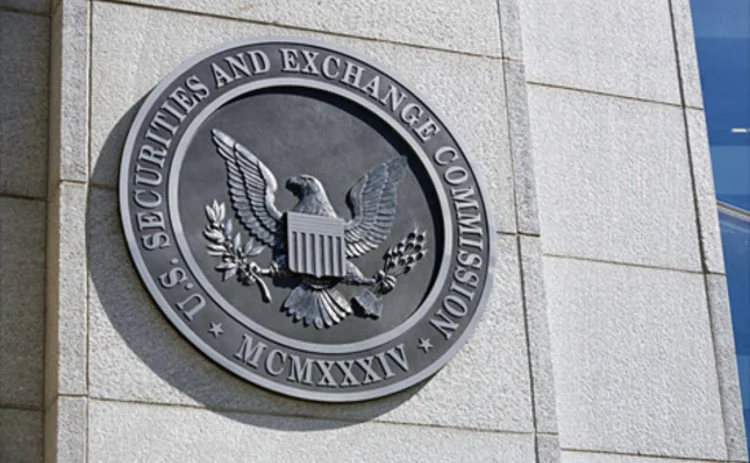SEC Stays Vague on Derivatives Regulation Timeframe

The US Securities Exchange Commission (SEC) has released a document detailing the order in which it desires incoming regulation of the derivatives market to take effect, but has declined to outline precise dates.
The policy statement, which also seeks public comment on the proposed rules, aims to attenuate industry anxiety over a perceived lack of direction on the part of the regulators regarding derivatives reform. As part of the Dodd-Frank Act, some of the major changes proposed under Title VII provisions will include the centralized trading of standardized derivatives contracts through so-called Swap Execution Facilities (SEFs).
"The policy statement seeks to provide a ‘roadmap' to market participants and the public on how we expect to implement the various regulatory requirements for this market," says Mary L Schapiro, chairman at the SEC. "We look forward to public comment on our anticipated sequencing as we continue to adopt and implement the rules under the law."
Missed Deadlines
However, both the SEC and the Commodity Futures Trading Commission (CFTC) have repeatedly missed deadlines for finalizing the specific rules, which were initially meant to be completed last year. In the policy statement, the SEC has declined to name specific dates for finalization, although the CFTC has already set a tentative date of 31 December 2012 for its own rulemaking process.
The foundation of the SEC's delays rest on standardizing definitions for various terms that are crucial to effectively implementing the regulation. These include defining security-based swaps and other areas in a legal context, pursuant to the Dodd-Frank Act as a whole. Other areas that have proved difficult to codify include the extraterritorial applications of Dodd-Frank, for example, regarding how US banks operating overseas will be affected.
Both the SEC and the CFTC have repeatedly missed deadlines for finalizing the specific rules, which were initially meant to be completed last year.
Earlier in the year, both the SEC and CFTC finalized rules which will identify companies as swap dealers. The SEC also stated that it intends for data warehouses, which collect information on the derivatives market, to register with the regulators. Part of the policy statement's objective is to introduce and reinforce the SEC's phased approach to delivering and implementing rules, so as to avoid operational difficulties with overall compliance.
Only users who have a paid subscription or are part of a corporate subscription are able to print or copy content.
To access these options, along with all other subscription benefits, please contact info@waterstechnology.com or view our subscription options here: https://subscriptions.waterstechnology.com/subscribe
You are currently unable to print this content. Please contact info@waterstechnology.com to find out more.
You are currently unable to copy this content. Please contact info@waterstechnology.com to find out more.
Copyright Infopro Digital Limited. All rights reserved.
As outlined in our terms and conditions, https://www.infopro-digital.com/terms-and-conditions/subscriptions/ (point 2.4), printing is limited to a single copy.
If you would like to purchase additional rights please email info@waterstechnology.com
Copyright Infopro Digital Limited. All rights reserved.
You may share this content using our article tools. As outlined in our terms and conditions, https://www.infopro-digital.com/terms-and-conditions/subscriptions/ (clause 2.4), an Authorised User may only make one copy of the materials for their own personal use. You must also comply with the restrictions in clause 2.5.
If you would like to purchase additional rights please email info@waterstechnology.com
More on Regulation
Esma supervision proposals ensnare Bloomberg and Tradeweb
Derivatives and bonds venues would become subject to centralized supervision if the proposed reforms go through.
Cyber insurance premiums dropped unexpectedly in 2025
Competition among carriers drives down premiums, despite increasing frequency and severity of attacks.
Market participants voice concerns as landmark EU AI Act deadline approaches
Come August, the EU’s AI Act will start to sink its teeth into Europe. Despite the short window, financial firms are still wondering how best to comply.
ICE to seek tokenization approval from SEC under existing federal laws
CEO Jeff Sprecher says the new NYSE tokenization initiative is not dependent on the passage of the US Clarity Act.
Why UPIs could spell goodbye for OTC-Isins
Critics warn UK will miss opportunity to simplify transaction reporting if it spurns UPI.
Re-examining Big Tech’s influence over the capital markets
Waters Wrap: A few years ago, it seemed the big cloud providers were positioning themselves to dominate the capital markets tech scene. And then came ChatGPT.
Pressure mounts on Asia to fall in line for T+1
With the US already on a T+1 settlement cycle, and the UK and EU preparing for the shift in 2027, there’s pressure for Asia to follow suit. But moving may involve more risks than expected.
Brokers must shift HFT servers after China colocation ban
New exchange guidance drives rush for “proximity colo” in nearby datacenters.







